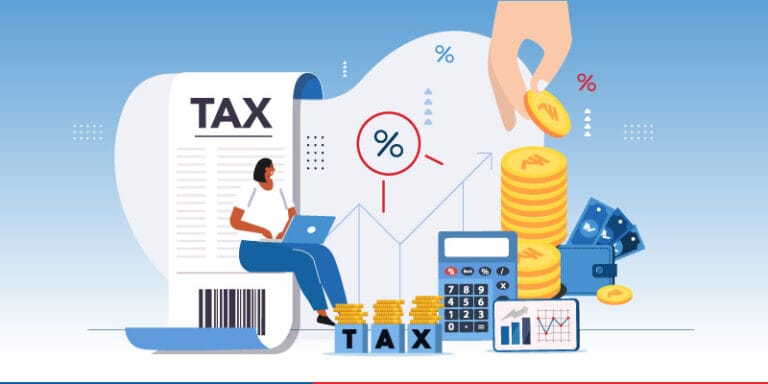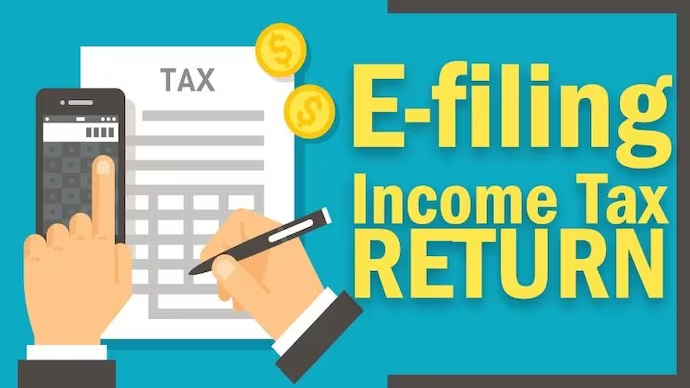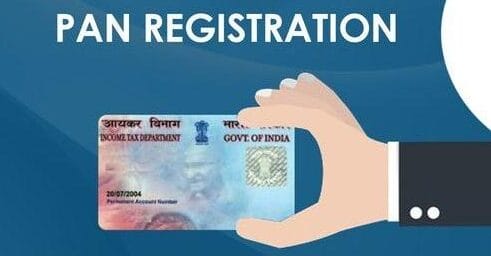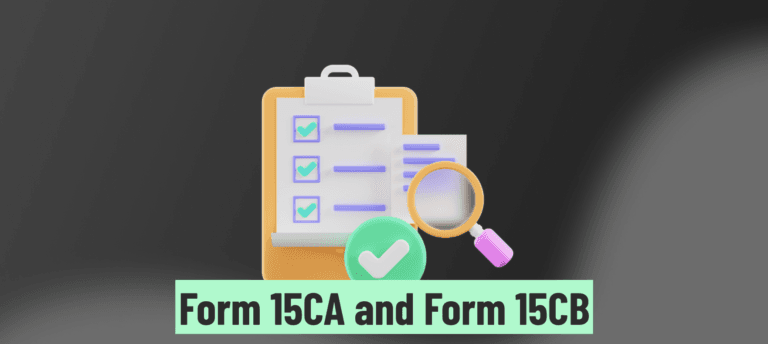The remitter uses Form 15CA to declare the remittance of payments made to non-residents or foreign entities. The Indian government tracks international payments and ensures proper tax deduction at source (TDS) through this process. The Income Tax Act mandates that any person making a payment to a non-resident, which is chargeable under Indian tax laws, must submit Form 15CA.
Alongside Form 15CB, the remitter must also file Form 15CA. The remitter provides an undertaking in this form, detailing the remittance and certifying that taxes have been deducted at source.
Steps for Filing Form 15CA
1. Log in to the e-Filing Portal
- Use your credentials to log in to the Income Tax Department’s e-filing portal.
2. Navigate to Form 15CA
- Go to ‘e-File’ -> ‘Income Tax Forms’ -> ‘File Income Tax Forms’ and select ‘Form 15CA’.
3. Part Selection
- Select the appropriate part based on the nature of remittance:
- Part A: For remittance less than Rs. 5 Lakhs in a financial year.
- Part B: For remittance exceeding Rs. 5 Lakhs and where Form 15CB is not required.
- Part C: For remittance exceeding Rs. 5 Lakhs and where Form 15CB is required.
- Part D: For remittances not chargeable to tax under the Income Tax Act.
4. Fill in the Details
- Enter the details of the remitter, remittee, remittance, and TDS.
5. Attach Form 15CB
- Upload the digitally signed Form 15CB.
6. Verification and Submission
- Verify the details using a Digital Signature Certificate (DSC) or Electronic Verification Code (EVC) and submit the form.
Documents Required for Filing
- PAN of the Remitter
- Details of Remittance
- Tax Residency Certificate (if applicable)
- Form 15CB (if applicable) – a certificate from a Chartered Accountant confirming the remittance is in compliance with Indian tax laws.
Penalties for Non-compliance
Failing to file Form 15CA before making an international remittance may result in penalties under the Income Tax Act. Late filing fees and more significant repercussions may apply if the remitter fails to report the remittance.
In conclusion, form 15CA filing is a crucial compliance requirement for anyone making payments to non-residents from India. The process ensures that all remittances are appropriately taxed and reported to the authorities. Understanding which part of the form to file and the required documents helps ensure smooth remittances and avoids any penalties for non-compliance.
At Ujjwal Gupta & Co
We, at Ujjwal Gupta & Co, are dedicated to delivering personalized, high-quality solutions tailored to meet your financial and business needs. With our team of professionals and a client-first approach, we ensure that every challenge is met with expert guidance and strategic insight.
We are dedicated to ensuring your business’s success by providing best service practice available in the industry and that too at a cost effective pricing. Our team of experts is excited to work with you and provide the support you need to thrive in the Indian business landscape.
Our only motive is to create Value for Our Clients and accordingly, have a Client Value System at our Office.
So, let us help you navigate the complexities of finance and compliance, empowering you to focus on what matters most — growing your business. Get in touch today, and take the first step towards financial peace of mind.
Form 15CA is a declaration form , which a remitter files online, declaring information in respect of a payment made to a non-resident. It is part of the process for reporting remittances to non-residents and declaring whether the payment is taxable under Indian law.
The remitter must submit Form 15CA when making any foreign remittance or payment to a non-resident. The form informs the Income Tax Department of the remittance and confirms that tax has been deducted at source (TDS) when required under Section 195 of the Income Tax Act.
Form 15CA is divided into four parts, depending on the remittance type and the taxability of the transaction:
- Part A: For remittances less than ₹5 lakh in a financial year and where tax is deductible.
- Part B: For remittances exceeding ₹5 lakh in a financial year when an order/certificate under Section 195(2), 195(3), or 197 has been obtained from the Assessing Officer.
- Part C: For remittances exceeding ₹5 lakh where a Chartered Accountant (CA) certificate in Form 15CB is obtained.
- Part D: For remittances that are not taxable under Indian law.
No, Form 15CB is not required for all remittances. It is mandatory only when:
- The remittance exceeds ₹5 lakh in a financial year.
- The remittance is taxable and TDS is applicable.
- In such cases, Form 15CB must be obtained from a Chartered Accountant before filing Part C of Form 15CA.
To file Form 15CA online:
- Log in to the Income Tax Department’s e-filing portal.
- Navigate to the ‘e-File’ section and click on ‘Income Tax Forms’.
- Select Form 15CA and the appropriate part (A, B, C, or D) based on your remittance details.
- Fill in the necessary details and submit the form.
- Once filed, a copy of the acknowledgment will be generated.
The documents required for filing Form 15CA include:
- Invoice or contract relating to the foreign remittance.
- PAN details of the remitter.
- Bank details for making the remittance.
- Certificate under Section 195/197 from the Assessing Officer, if applicable (for Part B).
- Form 15CB certificate from a CA (for Part C).
- The remitter files Form 15CA as a self-declaration to the Income Tax Department for foreign payments.
- A Chartered Accountant issues Form 15CB, certifying that the tax on the foreign remittance has been correctly deducted and complies with Indian tax laws.
The Reserve Bank of India (RBI) exempts certain types of remittances from requiring Form 15CA under the Liberalized Remittance Scheme (LRS). Some examples where you do not need Form 15CA include:
- Payments for imports.
- Travel expenses for business or personal purposes.
- Educational expenses abroad.
- Medical treatment expenses. These remittances are covered under Rule 37BB of the Income Tax Rules.
Yes, if you have made an error in filing Form 15CA, you can revise it by filing a corrected form. However, if the bank has already processed the remittance, you may not be able to cancel it. If you need to make a correction before the remittance, submit a revised version and update the bank.
Non-filing or incorrect filing of Form 15CA can result in penalties under the Income Tax Act. The penalty for not filing Form 15CA can go up to ₹1 lakh under Section 271-I. Additionally, failure to deduct TDS or incorrect declaration can lead to further penalties and interest.
Why Choose UGC?

Client Centric Approach
Client is the key driver of our service offerings. Our approach to service offerings is based on a client centric and customized approach. Our specialized teams are a mix of technical and industry experience in order to serve clientele for their specific needs.

Team Work
We have built high performing teams supported by strong work ethic. Our team is a mix of experts, professionals and support staff from technical and varied academic, social and ethnic backgrounds. We believe diversification plays a vital role in motivating the team.

Quick Turnaround
We always endeavour for a quick turnaround time to serve our clientele. We are supported by an experienced and client focussed support teams to offer timely services to our clientele. In case of any business exigencies and time sensitive service requirements, you can always count on us.

Open Communications
We believe that open communication is the core principle in order to demonstrate trust, build long lasting and valuable relationships with clientele. We are committed to ensuring transparency in communication, service offerings and delivery. Our only motive is to provide professional services to our clients.

Client Value System
We value for the Client time and thus, we offer services that are value for money. Quality professional services are provided to our clients, so that they are able to achieve their desired results. We are a quality trademark in the industry and thus, our clients count on us always.

Quality in Delivering Work
Our service offerings are driven by quality and reviews at every level. We strive to provide a qualitative and value-added delivery to our clientele. At all times, we endeavour to provide exceptional client service by meeting client expectations and driving client satisfaction.





















